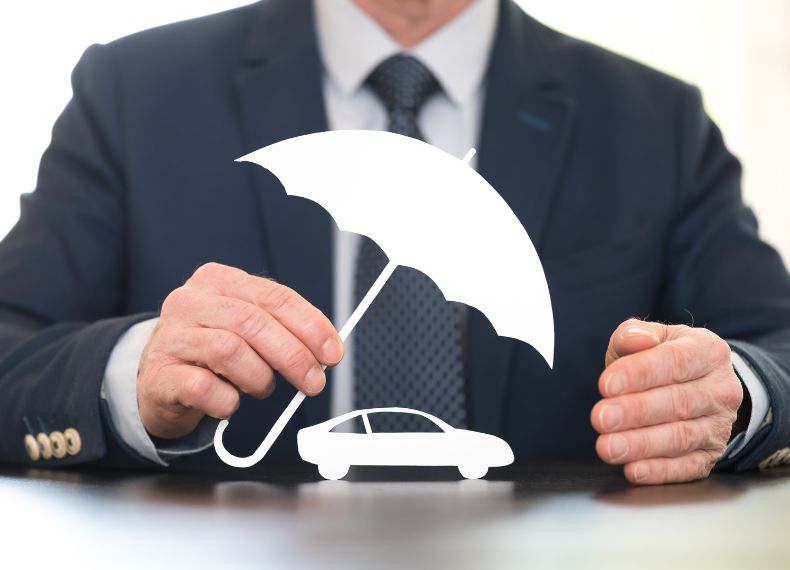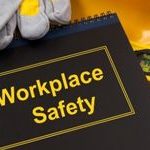Irrespective of the size of your company, you require commercial auto liability insurance if any vehicles are involved. Such insurance policies are made for both small and large commercial cars.
A business liability auto insurance plan may apply to any vehicle that belongs to your company and is operated by either you, as the owner, or your employees.
Auto insurance coverage safeguards your economic interests by taking care of your obligations in the event of an accident. You must be knowledgeable about the details of commercial auto insurance prior to purchasing it.
You may learn more about the benefits of having insurance coverage from this blog. Now let’s get into the specifics!
Why is commercial auto insurance necessary for your firm? What are its benefits?
You require auto insurance coverage if your business has a variety of vehicles. Even if you only have one motorized vehicle, it’ll cover them all. It’s essential for your automobiles anyway because, in most states, authorities have made purchasing a minimum of liability-only auto insurance mandatory.

- Protection from a variety of accidents
Automobile insurance shields your company from any harm that your vehicles may create. It’s useful for keeping track of all of your insurance costs in a single bill. With this type of liability insurance, you can get a customized insurance policy for your needs without having to buy new coverage each time you incorporate a car into your inventory.
On the contrary hand, comprehensive and affordable commercial auto insurance covers any accidents involving your vehicles. This covers third-party losses or claims, together with incidents like fire, theft, and natural disasters.
These policies cover:
-
-
- Staff automobiles
- Company vehicles
- Cabs
- Vehicles for hotel pickup
- Delivery vans or trucks
- Truck dumps
- JCB, forklifts, other construction machinery
- Utility service vans
- Truck boxes
-
What’s covered under auto liability insurance?
Property damages and bodily injuries are the two primary types of coverage offered by liability insurance. Uninsured or underinsured vehicle insurance, a third category of liability insurance, is also necessary in some areas within the US.
Liability insurance against property damage
Damage to property liability coverage can assist in covering the cost if your commercial vehicle accidentally damages somebody else’s belongings. Based on your coverage limit, it might pay all or part of the damages if you hit another car or property, like a tree or a gate.
Liability insurance for bodily harm
What happens if your business vehicle causes a collision and another person gets hurt? There’re tort coverage laws in several states. According to these regulations, you’re liable for paying the related expenses.
Bodily injury liability coverage can aid in paying the victim’s medical bills in a jurisdiction where tort insurance regulations are in place. Additional claims for compensation, such as loss of wages or suffering and pain may also be included.
The value of liability coverage is typically denoted on automobile insurance quotations by a string of three digits. The first two figures indicate the amount of bodily harm coverage offered. The third number indicates the extent of the policy’s damage to property coverage.
Protection from personal injury
Things operate a little differently in states having no-fault insurance legislation. The commercial auto liability insurance covers each of your firm’s drivers’ post-accident medical costs, according to a set cap, in states where no-fault insurance rules are in effect. Here, the insurance company covers all medical costs, up to a certain amount, for both motorists and any riders.
In certain of these jurisdictions, you must also purchase personal injury coverage. Irrespective of who initiated the collision, this policy will provide a minimal amount per employee for injuries to you and any passengers in your firm’s automobile.
Coverage for uninsured or underinsured drivers
Some states may mandate uninsured motorist insurance and/or underinsured auto coverage on top of the other kinds of liability coverage that were primarily determined.
If your company vehicle is involved in a hit-and-run incident or one that was triggered by a motorist who isn’t covered by liability insurance, auto insurance coverage might be able to assist with paying your medical bills or your vehicle’s repair costs.
If the motorist who hit you had insurance liability constraints that weren’t enough to cover the harm your vehicle’s driver sustained, this is what happens. Up to the limitations of your plan, underinsured motorist insurance may cover the gap between the motorist’s liability restrictions and the price of your losses or injuries.
- Fulfillment of legal obligations
In 49 states plus Washington, D.C., liability insurance is mandated by law. New Hampshire is the only jurisdiction that does not mandate auto liability insurance. Rather, if a motorist in New Hampshire is to blame for an accident, they must demonstrate that they can pay for the costs of the accident out of pocket.
Personal injury insurance or uninsured/underinsured driver coverage is optional in certain states and mandatory in others. To find out the minimal limitations needed in your jurisdiction, contact the state legislature or the department of transportation.
If you or a worker is at blame in an accident and individuals are hurt or their belongings are damaged, commercial auto liability insurance can help with the financial burden. Throughout most states, you need to have at least a certain amount of business auto insurance coverage (or financial responsibility documentation).
To safeguard customers in the event that the driver who caused your accident is not able to cover the whole cost, certain jurisdictions also mandate underinsured motorist or uninsured motorist coverage.
- Increased limits
You run the danger of having an accident every time you or a worker operate a car. Accidents involving commercial vehicles may result in legal action. Punitive damages, legal costs, and medical costs can all easily exceed $60,000.
This sum might be greater than what’s covered by a personal motor insurance policy. Fortunately, commercial insurance packages like automobile liability coverage typically have greater coverage that includes all the vehicles owned by your business.
- Replacement costs
Many company owners carry equipment and tools for their operations while driving. Such instruments, which range from hydraulic jacks to culinary equipment, facilitate your work.
Your insurance provider will probably contribute some money to the cost of replacing these tools if you’ve commercial motor insurance coverage. Regrettably, commercial tools and equipment are rarely covered by personal motor insurance.
- A shield for your employees
One of running a business is wearing numerous hats. You have a lot of people depending on you every day. Despite your best efforts, you are unable to constantly be everywhere. When it involves running your firm, employees are excellent stand-ins for management. As a result, they might’ve to use the vehicles owned by your company to perform business.
Commercial car insurance will probably be useful if workers are injured in a collision while on the job. To allow them to complete the task, you can just hand somebody the keys. Your company will be shielded from lawsuits resulting from accidents when someone else was at fault thanks to your business insurance policy that includes auto coverage.
- Compliance with the conditions of your fleet lease
Most lessees demand that firms keep their commercial automobile insurance current.
If you get into an accident, auto insurance will help safeguard their interests. They’ll be spared some of the hazards of having to suffer a loss in the event that the company suffers harm.
- Coverage for third parties’ liability
Property and belongings nearby may sustain damage as a result of accidents. If you happen to damage someone else’s car or property, corporate auto insurance offers a variety of protections.
Additionally, business auto insurance coverage can reimburse medical bills, court charges, and missed income if the accident results in physical harm and high medical expenditures for you and anybody else affected by the collision.
- Protection from fines
In the event of a crash, your employees might be required to cover the cost of any necessary auto repairs for both your own automobile and any other vehicles involved. Auto insurance claims can cover policyholders’ repair expenses irrespective of who was at blame.
A further degree of security is provided by some policies’ ability to cover drivers who lack insurance. If you don’t have car insurance or some other sort of financial accountability, it could lead to fines or losing the ability to operate a vehicle
For instance, in the event of a car accident, Tennessee’s Financial Responsibility Rule mandates you to be financially liable. The simplest approach to satisfy your financial obligation requirements under state law is to enroll in an auto liability insurance plan unless you’re excluded from it.
- Beneficial add-ons
Policies for commercial vehicles can be altered. You can choose from a range of popular insurance add-ons (endorsements) to suit your needs, including coverage for roadside assistance, towing reimbursement, and new vehicle replacement costs.
Rounding it up
Your broker is a great resource for information and can help you create the ideal policy for you. In many different ways, commercial auto insurance offers you protection.
You might be tempted to keep your personal auto insurance on the vehicles used for business purposes in order to cut money. But resist giving in.
Numerous advantages of commercial auto insurance safeguard your business.







